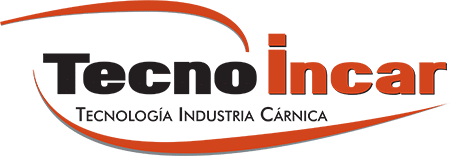The Journey of Meat from Production to Your Plate
The expression “from farm to table” encapsulates the journey of food from its origin in primary production to its final consumption. In the case of meat, this journey involves a series of crucial stages that ensure the quality, safety, and sustainability of the product that reaches our plates. Understanding these phases is essential not only to appreciate the work behind each piece of meat but also to make informed decisions as consumers.
Raising and Production
Animal Feeding and Welfare
Slaughter and Processing
Inspection and Quality Control
Distribution and Marketing
Traceability
Consumption and Sustainability
Consumer Education
Raising and Production
The journey of meat begins on the farm, where animals are raised under specific conditions that vary depending on the species and type of production (intensive or extensive). In intensive farms, animals are usually kept in more controlled environments, utilizing advanced feeding and management techniques to maximize efficiency. Conversely, in extensive farms, animals typically graze freely, which can influence the quality of the meat, as well as aspects like flavor and texture.
Animal Feeding and Welfare
Feeding is a critical factor in raising animals for meat. Producers use balanced diets to ensure the healthy and efficient growth of the animals. Additionally, animal welfare has gained significant importance in recent years, with a focus on providing living conditions that reduce stress and improve the overall health of the animals. This includes access to clean water, sufficient space to move around, and management practices that prevent mistreatment.
Slaughter and Processing
Once the animals reach the appropriate weight and age, they are transported to slaughter facilities. Here, it is crucial to adhere to strict animal welfare and food safety regulations. The slaughter process must be as quick and humane as possible to minimize suffering. Afterward, the meat undergoes a series of quality checks to detect any signs of disease or contamination.
Inspection and Quality Control
Meat processing facilities are subject to regular inspections by health authorities. These checks ensure that the meat is safe for consumption and meets established standards. Additionally, microbiological and chemical residue tests are conducted to ensure that the meat is free of harmful contaminants.
Distribution and Marketing
Once processed and packaged, the meat is distributed through a supply chain that can include cold storage, refrigerated transport, and retail outlets. The logistics of distribution are vital for maintaining the meat in optimal conditions, preventing spoilage, and ensuring that the product reaches the final consumer fresh.
Traceability
Traceability is a crucial aspect of meat distribution. This system allows tracking the journey of the meat from the farm to the point of sale, providing detailed information about the product’s origin, production process, and storage and transport conditions. Traceability ensures transparency for the consumer and is essential in case of product recalls for food safety reasons.
Consumption and Sustainability
In the final stage, the meat reaches the consumer’s table. Here, decisions on how to prepare and consume the meat can significantly impact health and well-being. Additionally, it is important to consider the sustainability of our consumption choices. Meat production has a considerable environmental impact, so opting for sustainably produced meats, reducing food waste, and balancing the diet with more plant-based proteins are actions that can contribute to a more sustainable future.
Consumer Education
Consumer education plays a crucial role in the final phase of the meat supply chain. Understanding the origin of meat, production practices, and environmental implications allows consumers to make more informed and responsible decisions. Initiatives such as clear labeling, animal welfare certifications, and sustainability certifications help guide these decisions.
At Tecnoincar Toledo, we manufacture industrial machinery for the agri-food sector. With a solid track record in the market, our company is committed to offering innovative solutions that optimize production processes and improve efficiency at various stages of the food industry.
Our focus includes:
– Cutting Rooms
– Pig, Sheep, and Cattle Slaughterhouses
– Overhead Rails
– Ham and Sausage Factories
– Loading and Unloading Equipment and much more
Follow us on our YouTube channel for more updates.

